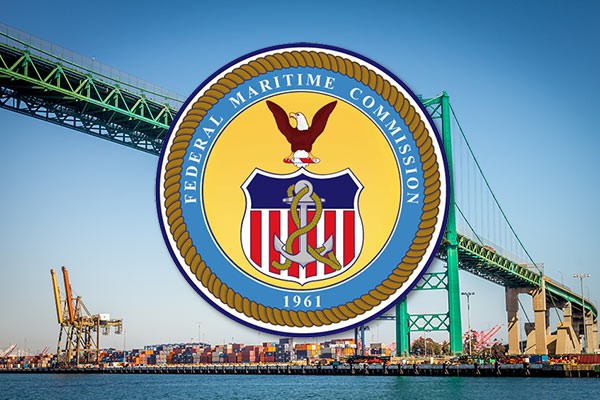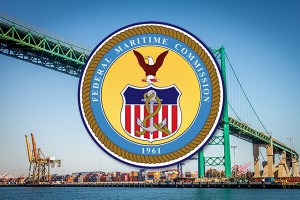(WASHINGTON) — Six supply chain innovation teams are being convened by Federal Maritime Commission (FMC) Commissioner Rebecca Dye to identify and implement improvements to the process and timing of return and delivery of containers to marine terminals.
This announcement came at a Tuesday meeting of the FMC where briefings were provided on topics related to conditions in the marketplace for container shipping services, the current state of the ocean-linked supply chain, and the commercial and operational behavior of shipping lines.
Dye is convening the teams under her authority as the fact-finding officer for Fact Finding 29. Her goals for the teams’ work are twofold. First, for truckers to be able to return an empty container to a terminal and pick up a loaded container, commonly referred to as a “double move.” The second is to bring certainty and predictability to the earliest return date process to address exporter complaints about the unreliability of the deadline for getting cargo to a terminal.
Teams will focus their efforts on improving conditions at the ports of Los Angeles and Long Beach and New York and New Jersey. They will be comprised of executives from each ocean carrier operating in an alliance and from the marine terminal operators that serve them. The first meetings of the teams will be held Dec. 1.
“Achieving double moves for truckers would improve trucker productivity and remove a constant source of conflict over container return as well as resolve problems with appointment systems and chassis shortages. Earliest return date confusion is a terrible problem for U.S. exporters. This reform would also remove the constant problem to U.S. agricultural exporters of demurrage and detention charges that are not in compliance with our interpretative rule,” said Dye.
Chairman Daniel Maffei endorsed this latest initiative to address supply chain congestion issues.
“I fully support Commissioner Dye’s leadership in addressing these issues and applaud her continuing efforts to use the commission’s statutory authorities to improve conditions contributing to inefficiencies in the Nation’s ocean supply chain,” said Maffei.
In the open session of the meeting, the commission was briefed on U.S. macroeconomic indicators generally, and their associated impact on shipping, the state of the U.S.-International ocean trades, vessel capacity, and pricing. In closed session, commissioners were briefed on ocean carrier revenue and pricing, capacity, canceled sailings, and port calls.
– Federal Maritime Commission


